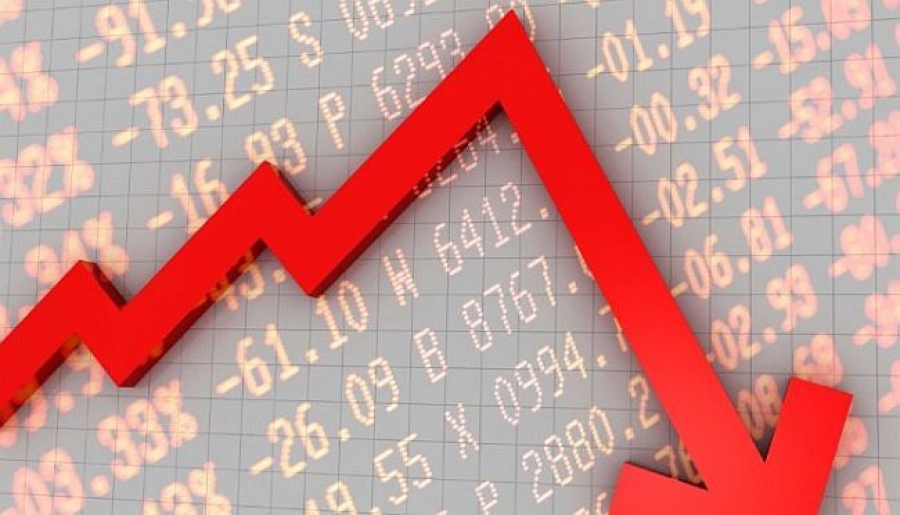The wild stock market of the past week has sent some into a panic and caused many others to take a closer look at their financial picture. But what is the stock market's impact on real estate, and should you worry if you're getting ready to buy a new home? Not much at this point, and not really, say financial experts.
So why isn't a 1,175-point drop - the largest single-day dip in history - not a concern? First, because most financial experts saw some sort of correction coming because of the robust market over the last two years (and, as many expected, the market bounced back with a 567-point gain on Tuesday, although there could be more volatility in the short term).
"The stock market has been on a roller-coaster ride since late last week, with a historic one-day plunge in trading, and a ripple effect that struck the rest of the globe Tuesday," said Inman. "But most economists will tell you the historic highs over the past two years were bound to result in a correction of sorts as investors reckon with the possibility of inflation and rising interest rates."
Second, and most important to homebuyers, is the fact that any potential impact on real estate is expected to be nominal. "Real estate professionals, and potential homebuyers and sellers aren't immune to the fears that reverberated across trading floors on Friday and again on Monday, they said, "but analysts say the effect on home prices, sales volume and lending activity will be minimal and temporary."
Play the long game
Of course, the stock market isn't one size fits all, and, depending on where your investments lie, you may, understandably, be worried. Economists and financial planners have generally had similar advice to "average investors" wondering how to respond to the stock market's volatility: Think about your objectives and, "Stay put," said CNN Money. It's all about playing the long game.
"Are you saving for retirement? A future home purchase? If those goals are more than 10 years away, you probably don't have much to worry about. While it's hard to ignore the noise when the market experiences a dark day, it's important to take the emotion out of trading."
On the other hand, if you have a more immediate goal of buying a home and your down payment is tied to your investments, it's probably time to call your financial advisor and reevaluate your portfolio.
What does all of this mean for real estate?
That depends on what aspect of real estate you're talking about. Publicly traded real estate-based companies including "Realogy, Zillow, Redfin, News Corp, and Re/Max "posted modest losses between end of trading on Thursday and Monday's close," said Inman. Real estate investors also felt an immediate pinch. "The plunge also resonated through real estate investment trust stocks, resulting in a 2.9% drop in the FTSE NAREIT All Equity REIT Index Monday," said BISNOW. But, National Association of Real Estate Investment Trusts (NAREIT) "economist Brad Case said the 2.86% drop in the All Equity REIT index, though sizable, will be short-lived."
The potential for dipping consumer confidence can have a far greater impact on the overall economy and, specifically, the real estate market.
"Consumer confidence is a major consideration when people purchase durable goods and real estate," said ZACKS. "Few people are likely to commit to a big mortgage payment if they feel that their economic future is uncertain. When the stock market retreats and the value of portfolios declines, investors are impacted psychologically. Even if the portfolios are in IRAs, which will not be touched for years, people's confidence is shaken. Loss of confidence can spread like a virus, affecting others who have not been financially hurt but have nevertheless become unnerved."
Which leads us back to the overall economy. U.S. jobs data released last week showed that "wage growth is picking up," said CNN Money. Even small upticks in mortgage rates haven't slowed down the real estate market, especially in light of consistent news about rising rents across the country that can make owning a home more affordable than paying someone else's mortgage in many cities.
The stability of real estate as an asset should shield the industry - and those who are looking to be a part of it, even as stocks rise and fall. "Back when the internet bubble burst in the year 2000, during that period, that's when the housing market began to steadily rise," National Association of Realtors Chief Economist Lawrence Yun told Inman. "That means that as people felt their financial assets to be very volatile, people were looking for more stable assets, which they perceived that real estate could provide."









